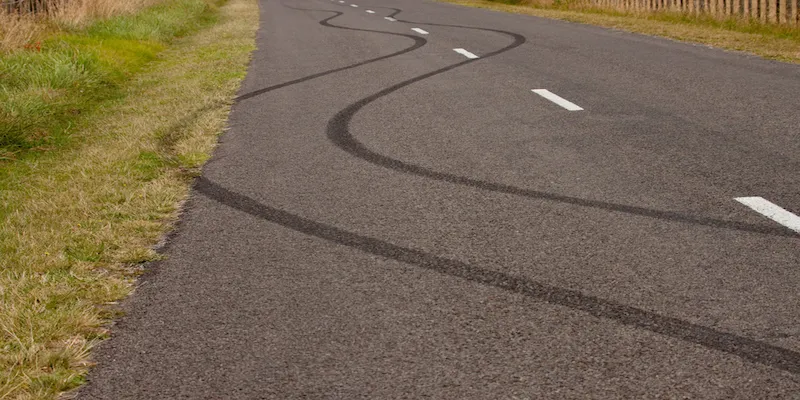Insider view: speed vs sustainability
Speed – a way of life
Move fast and break things. Unless you are breaking stuff, you are not moving fast enough.
This widely popular quote by Mark Zuckerberg, Founder of Facebook, is one of the so-called mantras of success in the modern world, especially for startups.
Speed seems to fascinate everyone. It has become one of the fundamental factors to achieve anything worthwhile. Doing things faster is a success in itself. To say the least, speed is a way of life today.
Everyone wants to do things faster. Every morning, we want to get ready for work fast to beat the traffic. We want our food to get cooked fast. We want our on-demand apps to achieve the speed of light. We want to build things faster. Millennials even want to accelerate relationships and get to the results fast.
We hardly take time to just be, to let our creative juices flow and to enjoy a moment of nothingness. It is considered unproductive. The idea of slow growth is an oxymoron.
For startups and entrepreneurs, speed is the core of their existence. It is the competitive edge in the market – decide fast, execute fast, iterate fast, change fast, and fail fast.
‘Do things fast or somebody else will’ is the constant fear and motivation for all startup founders. As much as your business is about your idea, it is about speed of execution.

But is speed sustainable?
Acceleration rather than deceleration has been the constant leitmotiv of cultural modernity.
Deforestation for urbanization, inventions of chemicals to grow crops faster, ready to eat packaged food and everything available on a single tap on our mobile screens – we have achieved speed.
And now we are struggling to find solutions to the adverse consequences of this fast growth -- global warming, toxic substances harming our health and environment, and fast cash burn without any sign of profitability for startups in the near future.
Shall we focus on fast growth or sustainable growth?
When it comes to startups, this question becomes even more daunting. Sometimes in the race to be the first and the fastest -- the foundation gets hampered, some not-the-best-decisions are taken, and the culture of the company and teams fall apart. Startups fail.
When and where is speed essential?
The answer to ‘when is speed essential?’ is determined by three factors.
One of these three factors is something beyond ones control -- what is the competition doing? If one of your competitors captures a lead position in the market, it will be very difficult for you to then capture that market if you are not fast enough. This can happen with both startups and established companies.
For example, in China, companies like eBay and Amazon didn’t actually take Alibaba too seriously but Alibaba got so big so fast that these companies could not capture the market. They didn’t execute with speed because of their focus on building business through an organic model, but by the time they could figure out a different strategy or speed up, their competitor was leading in the market and was executing at a trail blazing speed to grow further.
When the competitor is moving fast, gaining real traction and capturing market share and customers, you have no choice but to execute and out-speed them.
Second is, when you have a very clear idea of what you are doing, you have a strong unit economics and a team that can accelerate best in class growth and best in class margins, then there’s no reason to put artificial hurdles to your growth. Alibaba today has 279 million active buyers and 8.5 million annual active sellers, and these numbers are growing day by day. Why should it slow down at all? Speed makes complete sense and is essential for further growth.
If you are riding a frictionless slide, don’t put hurdles in your path. There are some businesses like Whatsapp, Alibaba, Uber and Facebook, that grew by themselves, in which case you must be willing to go as fast as the market is willing to adopt. Speed makes absolute sense here when all the right ingredients are in place.
The third factor is not really recommended, but is worth taking a shot at. If the markets are in a frenzy and you are able to experiment (when somebody is ready to fund you), then why not go at a full speed? By all means you should go ahead.
These are the three scenarios in which speed is your friend.

But if your product market proposition is not very clear, market adoption is slow, there is no visible competitor gaining and you really need some more discovery on product pricing, customer value etc, then spending a lot of money at speed to achieve suboptimal results does not offer any advantage. If anything it might be detrimental.
There have been companies that might have been able to survive and sustain in the long term if they stayed till the right inflection point. Many such companies have probably lost the opportunity by being impatient and going with too much speed than needed.
For example, the e-commerce startup Fab that raised $330 million and then went bust trying to execute too fast. Fab, which was once valued at $900 million, was finally acquired for approximately $15 million. Three days ago, Zirtual, a growing startup that had recently raised $5.5 million laid off 400 employees and disappeared. The reasons for this is speculated to be ‘growth, but too fast growth’. Homejoy burnt cash too fast and its legal wrangles highlight the need for entrepreneurs to do complete research before starting up.
When and where is sustainability essential?
Today we all use Google Maps, which was launched on February 8th, 2005. The GPS has been in existence since 1973 and it has been over 25 years that the GPS was opened for commercial use. It is a 25-year-old technology but it took a long time to make that technology affordable for public use.
Certain technologies do take time to mature.
Before you can run rapidly, you need to have responsible and sustainable experimentation to evaluate whether there is a growth inflection for what you are trying to achieve. Sustainability is essential here because sometimes technologies take time to mature. Sometimes even when technology is mature, market adoption is slow or without volume a certain price point can’t be achieved. It can become a chicken and egg problem -- without achieving a certain price point, inflection cannot happen, mass adoption cannot happen and without mass adoption that price point cannot be achieved.
Technology that you developed for one purpose may actually have to be pivoted when you go into the market and find a different customer need than what you originally thought of.
You need to readapt and sustain till you are up and running again in the market to solve that customer need. If that sounds like what’s happening with you, then plan for sensible sustainable progress and save the speed for when you really are in the growth vertex.
Sustaining culture while speeding up
When you are riding a bicycle, you are able to make eye contact with the person walking by and may be even have the time to wave and say hello. When you are in a car, you might not be able to do the same as frequently or as comfortably. Suddenly, when you are speeding in a formula one, you will not be able to do that at all because survival in this seat needs complete and absolute focus.

When you shift from riding a bicycle to driving a formula one car, you will look at people differently and they will look at you differently too.
Startups sometimes try to shift this gear overnight and are not prepared for this change in dynamics. You need to rethink and ask yourself at each stage what are the new rules for a high performance team, and team members need to adapt to this change. Secondly, and most certainly, your processes and systems need to change. If either of this is not happening, you need to put some speed bumps on your way and recheck with yourself if you are ready to go this fast.
If you keep going without being sure that you can sustain yourself at this speed, probability is very high that you will run into a wall. Study, learn and think about it – what kind of speed is needed for your company, the stage your company is at, what are those processes that need to be in place.
The core values and the fundamentals, like that of a bicyclist or a formula one driver, will be the same. But your flexibility, your reaction time, systems in which you operate, the discipline, the infrastructure, and the focus at the moment -- all need to be different. It will be foolhardy to not put these right things in place to match the current speed of your company. Sometimes you don’t even have the luxury of planning because things are happening too fast. Then be open that you might need to bring in people who can do that. Get them and empower them to build the necessary infrastructure for high-speed growth.
Is there a perfect balance between speed and sustainability?
You need to check only two things – whether speed is essential for survival and whether you can maintain this speed? And you need to constantly keep asking yourself and answering honestly to know if you can achieve a balance.
You need to be hundred percent ready to sustain the speed.
Image credits: www.shutterstock.com
Disclaimer: The author is an investor in YourStory.







